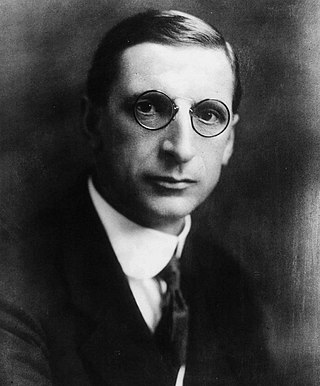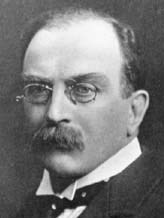
The 1918 Irish general election was the part of the 1918 United Kingdom general election which took place in Ireland. It is a key moment in modern Irish history because it saw the overwhelming defeat of the moderate nationalist Irish Parliamentary Party (IPP), which had dominated the Irish political landscape since the 1880s, and a landslide victory for the radical Sinn Féin party. Sinn Féin had never previously stood in a general election, but had won six seats in by-elections in 1917–18. The party had vowed in its manifesto to establish an independent Irish Republic. In Ulster, however, the Unionist Party was the most successful party.
General elections were held in Sweden on 17 and 18 September 1932. The Swedish Social Democratic Party remained the largest party, winning 104 of the 230 seats in the Andra kammaren of the Riksdag. The party returned to government after six years in opposition, marking the beginning of 44 years of near-uninterrupted rule. This was also the first time the socialist parties received an overall majority of the elected parties' popular vote, although the Hansson cabinet still required cross-aisle co-operation to govern since the centre-right parties won 118 out of 230 seats.

Carl Winberg, was a Swedish communist politician and newspaper editor.
Early general elections were held in Sweden between 27 March and 7 April 1914, after the Riksdag had been prematurely dissolved by the Cabinet of Hjalmar Hammarskjöld. The General Electoral League emerged as the largest party, winning 86 of the 230 seats in the Second Chamber. As of 2022, this is the last time a Swedish election has not seen the Social Democrats win a plurality of seats.
Early general elections were held in Sweden 5 and 13 September 1914, the second that year. Although the General Electoral League received the most votes, the Swedish Social Democratic Party emerged as the largest party, winning 87 of the 230 seats in the Second Chamber, and have managed to remain so in every subsequent Swedish election.

Harold James Glanville was an English businessman and Liberal Party politician.
The Kilmarnock Burghs by-election was a Parliamentary by-election held on 26 September 1911. It returned one Member of Parliament (MP) to the House of Commons of the United Kingdom, elected by the first past the post voting system. The constituency consisted of five parliamentary burghs: Kilmarnock in the county of Ayr, Dumbarton in the county of Dumbarton, Rutherglen in the county of Lanark and Renfrew and Port Glasgow in the county of Renfrew.

Johan Fridtjuv Berg was a Swedish school teacher, author, and politician (liberal); he was minister of education and ecclesiastical affairs from 1905 to 1906 and 1911 to 1914 and Member of Parliament from 1891 to 1916. Berg was the son of educator Anders Berg and father of historian Tor Berg and artist Yngve Berg.

The Cambridge University by-election was a Parliamentary by-election held on 11-16 February 1911. The constituency returned two Member of Parliament to the House of Commons of the United Kingdom, elected by the first past the post voting system.
Sweden held a general election on 21 September 1952.
Sweden held a general election on 19 September 1948.
Sweden held a general election on 15 September 1940.
Sweden held a general election around 19 September 1924. This was the second election under universal suffrage. In spite of a majority for the non-socialist parties, Social Democrat Hjalmar Branting was able to form a government, although his successor eventually saw the government fall and being replaced by a right-leaning Electoral League government.
Sweden held a general election around 15 September 1928.
Sweden held a general election around 17 September 1932.
Sweden held a general election throughout September 1921.
Sweden held a general election in March 1914 to finish off the original Riksdag term before the regular election later that year.
Sweden held a general election throughout September 1914.
Fyrstadskretsen was a constituency for election to the Riksdag between 1921 and 1991 - covering the municipalities of Malmö, Helsingborg, Landskrona and Lund.
Sweden held a general election in September 1920. The election was the last before universal suffrage was introduced the following year. The Social Democratic Party remained the largest party, winning 75 of the 230 seats in the Second Chamber of the Riksdag. In spite of this, the non-socialist parties got a sizeable majority in the chamber.





